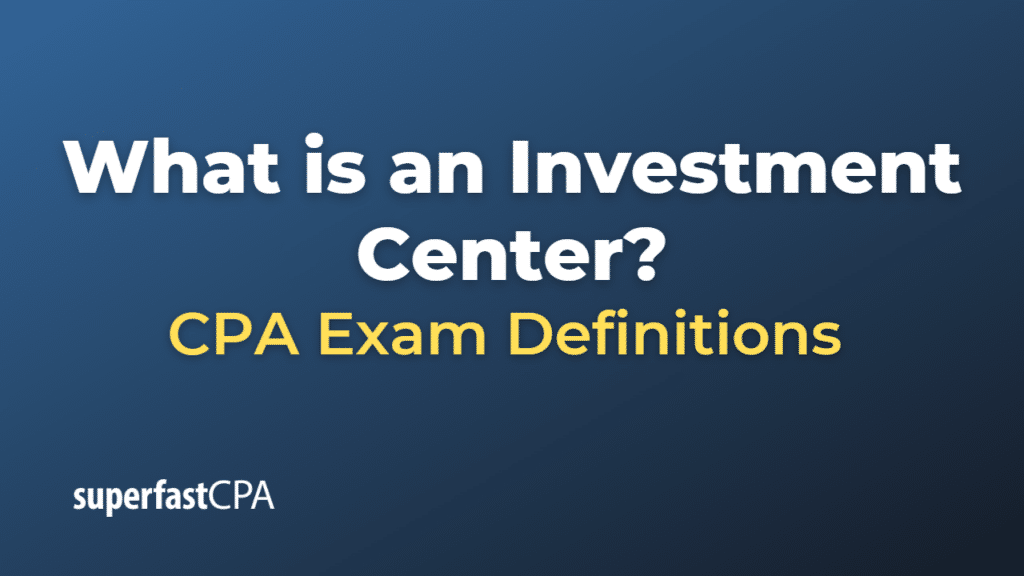Investment Center
An investment center is a business unit within a larger entity that has control over its revenue generation, costs, and investments in capital. This kind of division is evaluated based on its ability to generate profit and the effectiveness of its capital investment decisions.
For instance, in a large multinational company, the division responsible for operations in each country could be considered an investment center. The manager of the investment center is held responsible not only for the unit’s profits and losses, but also for the unit’s invested capital. The key measures that the parent company would use to assess the investment center’s performance could include return on investment (ROI), residual income, or economic value added (EVA).
The idea is to decentralize decision-making to the people who have the most knowledge of their particular business segment. By giving them control over their revenue, costs, and investments, they are able to make decisions that could benefit the overall profitability and efficiency of their unit.
To summarize, an investment center is a business unit within a larger entity that functions semi-autonomously with responsibility over its income, expenses, and capital investments. The performance of an investment center is often evaluated based on profitability and investment metrics.
Example of an Investment Center
Let’s consider a multinational corporation, TechGlobal Corp., that operates in multiple countries. Each country’s operation could be considered as an investment center within the larger organization.
For example, TechGlobal Corp.’s US division has control over its own revenue, costs, and investments. The US division generates revenue by selling products and services in the US market. The costs include the operating expenses such as salaries of employees, rent for offices, marketing expenses, etc. The division also has the ability to make capital investments, such as buying new equipment or investing in research and development for new products specific to the US market.
The performance of the US division (investment center) would be evaluated based on how profitably it is using its resources. For this, TechGlobal Corp. could use measures such as:
- Return on Investment (ROI): This calculates the profits made by the division relative to the total assets invested in the division. A higher ROI means the division is using its assets more efficiently to generate profits.
- Residual Income: This is the net operating income that an investment center earns above the minimum required return on its assets. The goal of an investment center is to generate as much residual income as possible.
- Economic Value Added (EVA): This is a measure of a company’s financial performance based on the residual wealth calculated by deducting the cost of capital from its operating profit.
The manager of the US division, as the head of the investment center, would be responsible for making decisions to maximize these performance measures, thus contributing to the overall profitability and efficiency of TechGlobal Corp.













